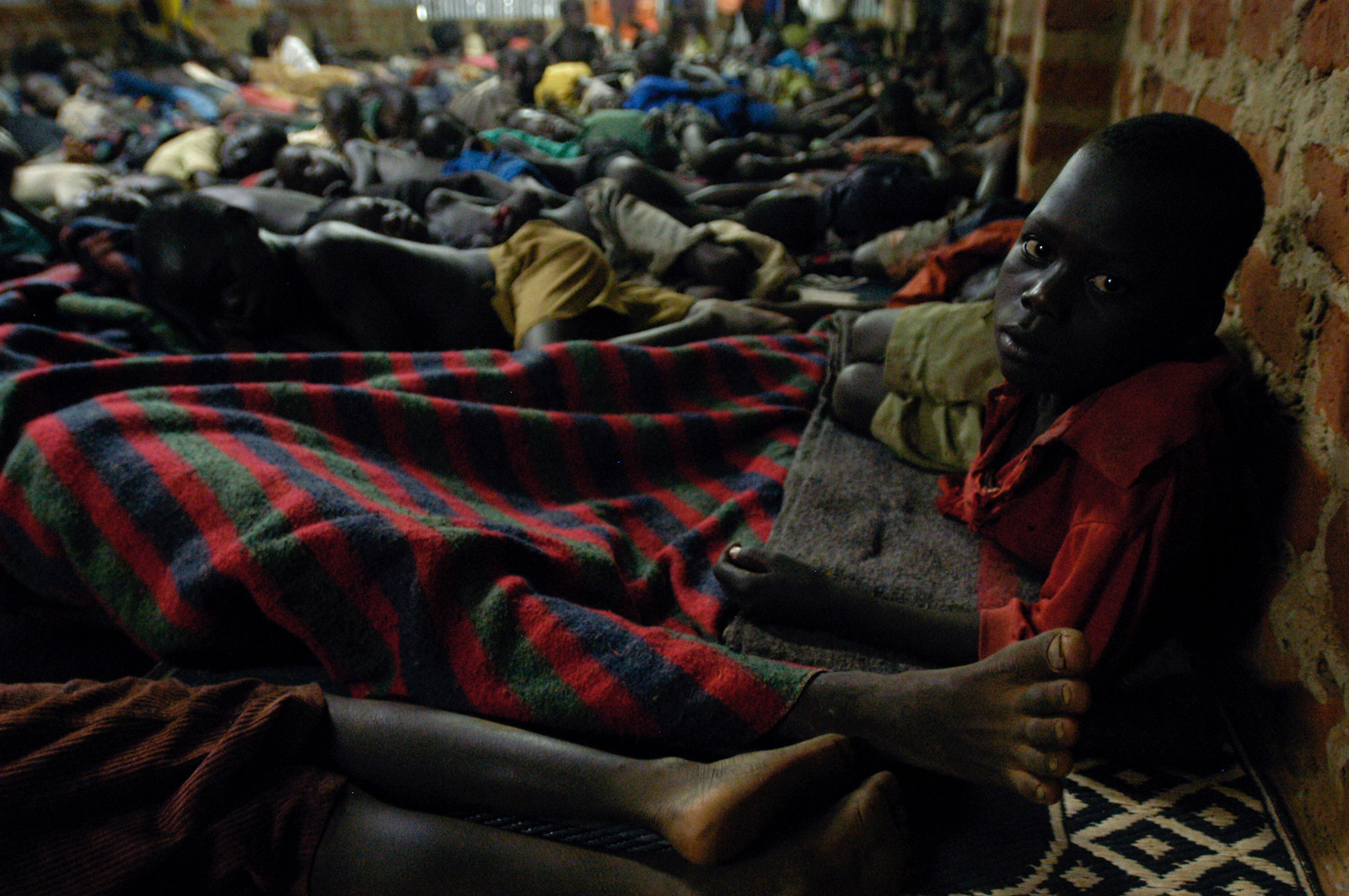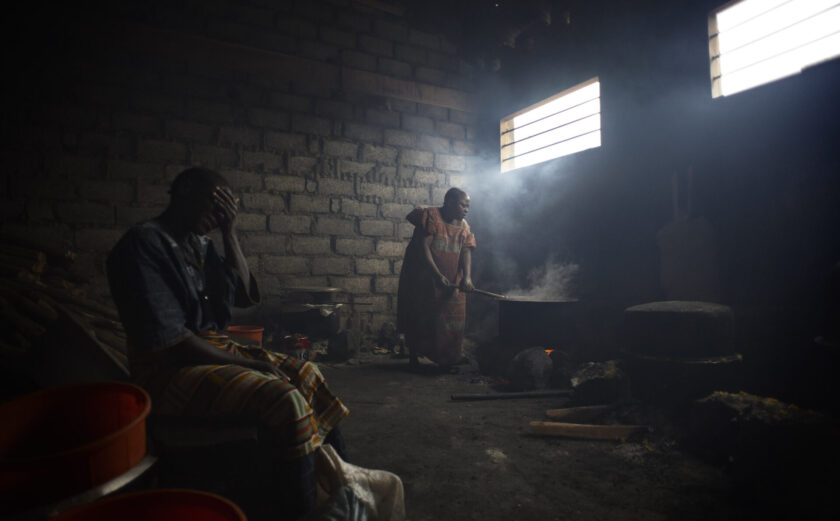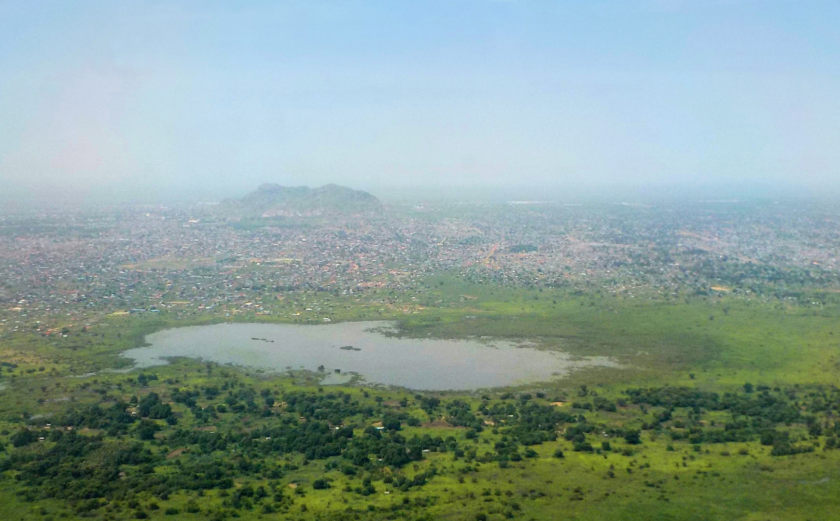
Photo By: Rick D'Elia is licensed under the CC BY-NC 4.0 license.
U.S. Security Partnership and the Protection of Civilians in Nigeria
A New Factsheet
The factsheet on U.S. security partnerships and the protection of civilians in Nigeria is the product of a collaboration between Brown University’s Center for Human Rights and Humanitarian Studies (CHRHS), the Security Assistance Monitor (SAM) at the Center for International Policy, and InterAction.
The factsheet provides an overview of key facts, data points, and analysis of issues related to U.S. security cooperation with the Nigerian Armed Forces (NAF) in the context of ongoing civilian harm and humanitarian concerns. It is the second in a series of issue briefs examining protection of civilians issues in geographies where the United States is a significant external security partner, following the first factsheet on Ethiopia.
The purpose of this series is to generate awareness of U.S. policies and practices on security cooperation and document their effectiveness in promoting civilian protection.
Key Findings
- Between 2000 and 2021, the United States provided more than $232 million in security sector assistance, and notified $593 million in foreign military sales and $305 million in direct commercial sales to Nigeria—all designed to support Nigerian government security and counterterrorism efforts, increase defense trade, promote cooperation on maritime and border security, and strengthen military professionalization and security sector governance.
- In addition to these sales, in April 2022, the U.S. announced a new $997 million foreign military sale (FMS) of 12 AH-1Z Attack Helicopters and related training and equipment to Nigeria.
- In 2017, the U.S. approved the $593 million sale of 12 A-29 Super Tucano aircraft and weapons to Nigeria, constituting what was until 2022 the largest U.S. foreign military sale in sub-Saharan Africa.
- The U.S. provided $1.9 billion in humanitarian assistance in the same period, including an average of $350 million per year since 2017.
- Despite reports of civilian casualties from Nigerian Armed Forces (NAF) airstrikes and other concerns, the flow of U.S. weapons into Nigeria has not slowed. In fact, 2020 saw the largest influx of direct commercial sales to the country in the last twenty years.
- Based on available information, the United States provided 41,027 training courses to Nigerian military personnel between 2000 and 2021, more than 35,000 of which came from the Peacekeeping Operations program. Of the remaining 5,930 courses, 46% were in other Train-and-Equip/Provision of Defense Articles programs and authorities and 45% in Education programs and authorities. The U.S. has not provided training from Humanitarian Assistance and Disaster Relief related programs.
- Although U.S. trainings have included a focus on international law compliance and appropriate weapons use to mitigate harm, there are continued reports of civilian harm caused by the NAF, including civilian casualties, enforced disappearances, sexual and gender-based violence, forced displacement, and obstacles on humanitarian access. Humanitarian workers have also shared that Nigeria’s security forces appear to have a limited understanding of humanitarian law and tools for effective engagement with local populations.
- This suggests that trainings provided by the U.S. and others have been insufficient in either quantity and scope or have not been appropriately targeted to relevant personnel and chain of command. It is also unclear whether the U.S. monitors implementation with a view to ensuring NAF operations promote the protection of civilians—and informing security cooperation decisions accordingly.
- The United States has made some efforts to engage the Nigerian military on civilian harm and humanitarian access concerns, including through training and outside of training, such as in bilateral dialogue. However, the U.S. faces apparent limited capacity to shape the conduct of Nigerian security forces, notably on best practices to minimize civilian harm and follow up to allegations of abuse.
- Nigerian military leadership has taken some steps to promote international humanitarian and human rights law training among its forces and compliance with relevant domestic laws. However, trainings have not been streamlined and integrated across the NAF and there is a clear gap in field-level implementation, notably in northern areas controlled or contested by non-state armed groups (NSAGs).
- Significant gaps remain, including command and control issues and limited doctrinal guidance to shape troop conduct in and outside of operations. Additionally, a lack of accountability for civilian harm hinders prospects for prioritizing civilian protection and avoidance of future harm. Much more needs to be done by the U.S. and Nigeria to encourage greater integration of civilian harm mitigation and best practice measures engagement with humanitarian actors and local communities across NAF rank-and-file.
The paper was originally published on the SAM website.









